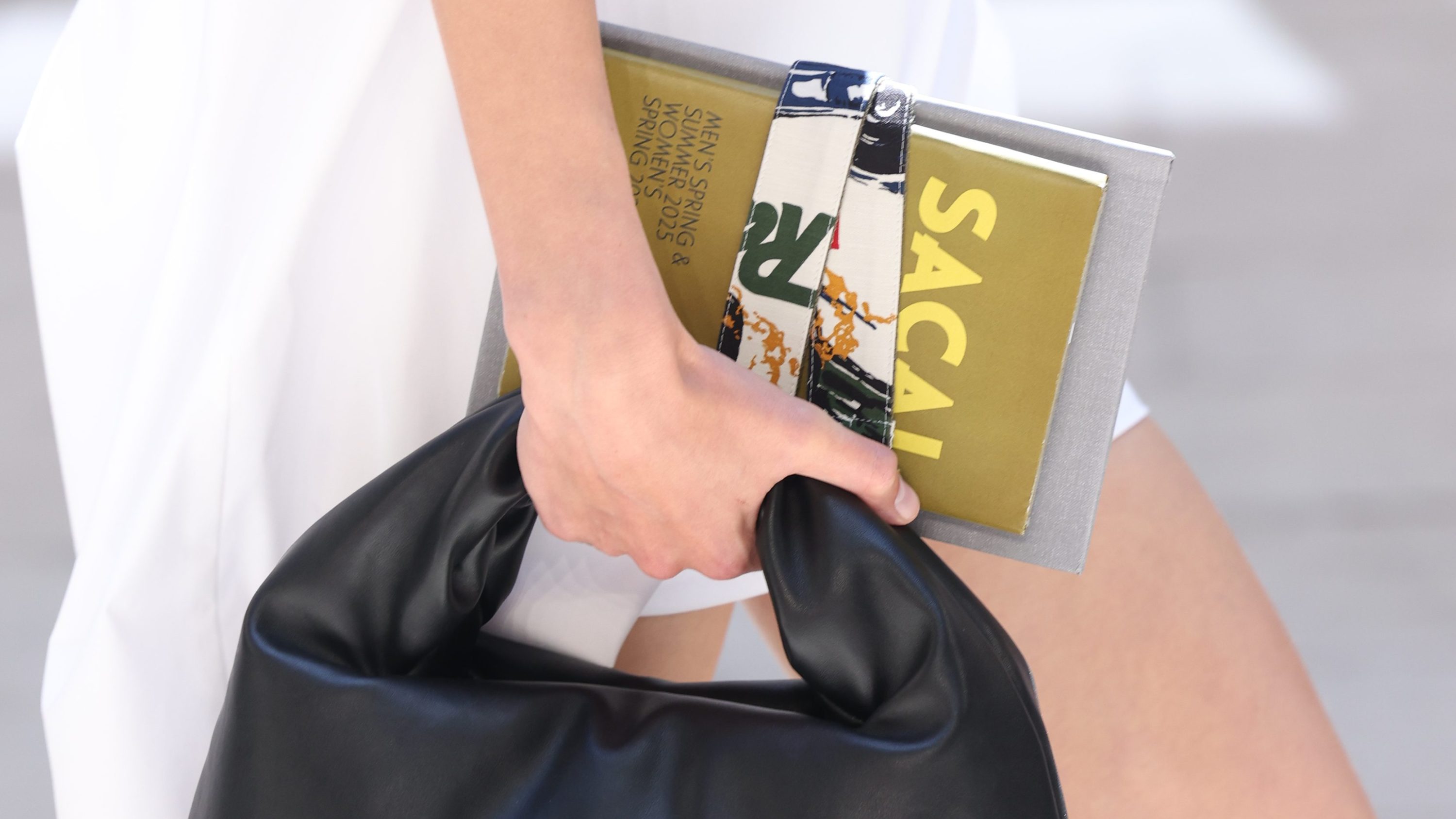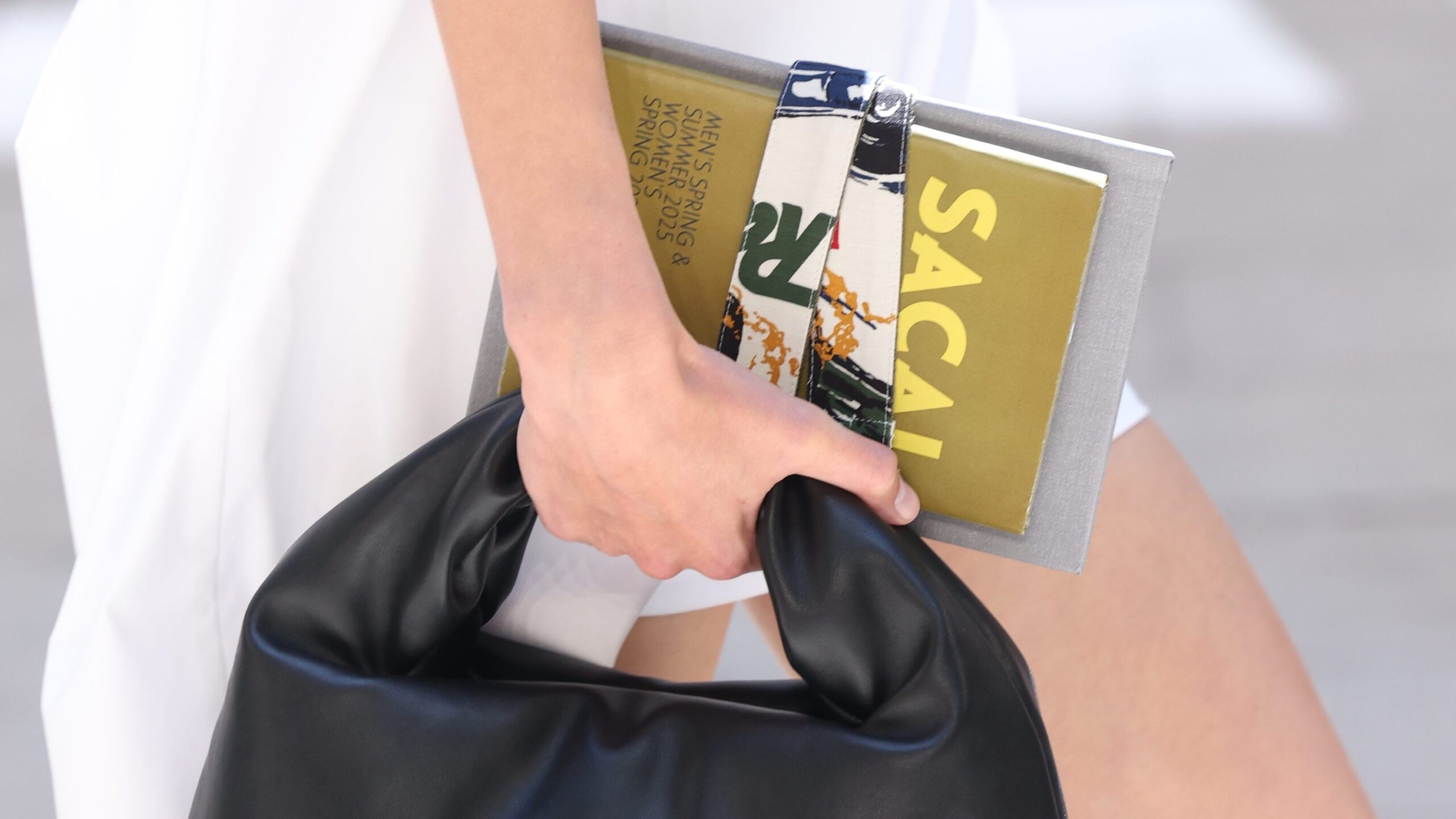 Photo by Peter White/Getty Images.
Photo by Peter White/Getty Images.
It’s only been about two years since the Internet whacked Ashley Tisdale for admitting that she had her husband go to the bookstore and buy 400 books to fill their bookshelves before filming a house tour with Architectural Digest, but to be honest, that moment may have been a prophecy we will, consciously or subconsciously, fall into. The truth of the matter is that books are having a moment in fashion. They say something about who their reader is, the same way a garment says something about its wearer. And that’s why fashion is tapping in.
You may or may not have seen, but earlier this summer, Miu Miu hosted pop-ups in major metropolitan cities across the world giving out free literature, the titles Sibilla Aleramo’s A Woman, Alba De Céspedes’s Forbidden Notebook and Jane Austen’s Persuasion. The books were chosen by Ms. Prada, of course. Then, just last week at Paris Men’s Fashion Week, several of the models walked down the Sacai runway carrying very elegant and sophisticated stacks of books in their hands, an accessory, of course, to the actual outfit. At Sacai, the books themselves were not real. They had Sacai written on the cover in bookish scripts, to give the effect that the models are school-age boys coming of age and looking good. But real or not, the literature in fashion seems to be a confession of the larger consumerist thing we have done to reading.
View this post on Instagram
The idea here is that people who have good taste in clothes will obviously also have good taste in other areas of culture, and while they’re busy with their nose in a book, you’re there observing. It’s another performance, another audience to go with it. And maybe there is even an air of superiority over being the kind of person who makes time in their busy day for the tedious task of reading, even more superiority for finding it easy.
This is not a lecture, by the way, more just an observation. People enjoy the aesthetics of reading, possibly more than they do the reading. People enjoy the vanity of being cultured as much, if not more than actually consuming that artifact of culture. We know Joan Didion’s portrait better than we know her voice.
And so what? Fashion, with its fake book covers, is at least being honest about that. Whether or not those brands meant to, the statement itself on the stylishness of books is pretty funny. Who said vanity had to be superficial?
But I don’t exactly think it’s all fake. Back last summer, Vietnamese designer and fashion darling Peter Do presented his debut collection as creative director of Helmut Lang and printed celebrated Vietnamese poet Ocean Vuong’s verses on some of the garments and on the catwalk. It was a callback to a ’90s era Helmut Lang collection that featured the words of artist Jenny Holzer. But there’s more. Loewe sells a Classics box set for nearly $600. Marc Jacobs posts selfies on Instagram of the latest books he’s reading, as well as a bookstore called Bookmarc. Back in February, Saint Laurent opened up a bookstore in Babylon (probably different from the Gucci Wooster Bookstore that was up in Soho in 2019—love it or hate it, Michele was the blueprint, but that’s for another day.) Anna Sui’s Fall/Winter 2024 show took inspiration from Miss Marple and Virginia Woolf and was staged at The Strand.
Of course there is a performance of intellect, but who the hell are we to take that away from one another. Performance is not the antithesis of authenticity. Calling something a performance does not take away from the truth. If anything, it adds to it. It tells the truth about the fact that we want to be seen loving things, even things we don’t participate in, but aspire to. And fashion knows about aspiration.


